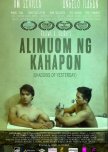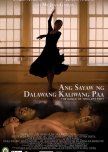- Français
- English
- magyar / magyar nyelv
- dansk
- Titre original: Moreno
- Aussi connu sous le nom de: Bronze
- Scénariste et Réalisateur: Crisaldo Pablo
- Genres: Drame
Distribution et équipes
- Ray An DulayDenverRôle principal
- Crisaldo PabloCris VicenteRôle Secondaire
- Mark DionisioMarvinRôle Secondaire
Critiques

Cet avis était-il utile?

'Moreno', between polygamy and absent monogamy
Already in 'Doubt' ('Duda, in Tagalog), his debut film filmed in 2003, and in 'Bathhouse' (2005), his second film, Crisaldo Pablo addressed topics such as promiscuity, infidelity and homosexuality.In 'Moreno', in Tagalog, (translation: 'Bronze'), a 2007 film shot on digital video, the pioneering director of Philippine guerrilla cinema addresses infidelity in a homosexual relationship, and compares its consequences with the marriage traditions of a poor town on the margins of civilization.
Characterized by its low budget, the intervention of a small number of actors, mostly non-professionals; an unconventional production method, few resources in production, a script without great needs and expenses, few locations, predominating real places to the detriment of sets built for filming; filming wherever necessary without asking for the relevant permission, filming with reduced technical and artistic teams, 'Moreno' follows a raw and independent approach to the so-called guerrilla cinema, as Pablo did in his debut film 'Doubt' and in his second film ' Bathhouse'.
In 'Moreno', its director chooses to demonstrate that he is capable of bringing homosexual relationships to the public eye and making the viewer care about the characters he develops.
Its main protagonist, Cris Vicente, is a documentary filmmaker who is going through difficulties in his romantic relationship with Denver (Ray An Dulay, 'Bathhouse'), his long-term partner.
While Cris tries to improve him relationship with Denver, Denver likes to be unfaithful to him boyfriend. Despite loving Cris deeply, Denver feels the need to look for lovers with whom to share him daily life. At the anniversary party, Denver drugs Cris so he can have a clear path to participate in an orgy with all her male guests, while Cris is unconscious.
The opportunity to leave behind his recent dark past is presented to Cris when the next day he must leave for Lake Sebu, in South Cotabato, to fulfill the assignment of documenting the traditions of the people of T'Boli, specifically making a profile on local women and their changing opinions on multiple marriages.
Waiting him in T'Boli is a woman Mawen (Ynez Veneracion, 'Retaso' 2007), his old friend, who serves as a link between the film company and the inhabitants of the coastal town.
Mawen's husband is also blatantly unfaithful to her, and his situation mirrors that of the cuckolded filmmaker.
The film leads the viewer to reflect on the polygamy of the town's inhabitants and, on the other hand, the absent monogamy of Denver.
Consider the last-minute twist involving Cris and his boss, which turns out to be too much of a coincidence to be believable.
Cris is also aware that one of the male villagers is bothering him. During filming, Cris forgets that he is supposed to be objective and becomes personally involved in the lives of several young women who are engaged to the Datu sa dokyu (Wings Lock), the village patriarch.
The Datu, as the richest men in the village are known, are allowed to have dozens of wives, forced by their impoverished families into marriage against their will to live a life of servitude in exchange for a dowry.
Thus, once again, another disturbing and undesirable view of marriage is presented to the public.
When Ngapon, a young T'boli woman, tells Cris that she wants to free herself from the marriage established by her parents and go to Manila, the main character begins to confront what she left behind in the city. Like the proud Datu with many wives, Cris remembers that he has Denver, his tanned-skinned lover in Manila, who is proud of his many relationships. Ngapon's search for freedom becomes Cris' journey into a dark and very sad past.
However, the experience lived in T'Boli will allow Cris to solve his relationship problem and find the only and correct answer.
With an autobiographical approach, in three of Crisaldo Pablo's films his main character is called Cris. Thus we have Jet Alcantara's Cris from 'Bathhouse', Andoy Ranay's Cris in 'Doubt', and Cris Vicente from 'Moreno', played by the director himself.
Curiously, in the 2009 film 'Showboyz', the main character is named Krys, and is played by Filipino actor Kristoffer King.
Accustomed to fighting battles against censorship, Crisaldo Pablo challenged, confronted and defeated the Philippine government's Film Board, when the film was originally given an X rating, which would have prohibited its exhibition in theaters. Finally, it was able to receive the desired R-18 rating.
Among the mistakes of 'Moreno' we must point out that the dynamics of Cris and Denver's toxic relationship are interesting and should have been explored more. When the story leaves Manila to unfold in T'Boli, it seems as if we left one film behind to watch another.
Although at the beginning Cris frequently remembers Denver's moments of infidelity and the viewer witnesses the slow disintegration of her marriage through some very effective flashbacks, these disappear towards the middle of the film and do not reappear until its climax.
All of this prevents the story in the coastal town from developing organically and effectively, leaving the viewer with what appears to be a very choppy documentary. The reaction of the public that criticizes the lack of a structured story with fully represented dramatic peaks is logical.
Among its successes, we can highlight that the film is capable of showing homosexual couples who have the same problems and struggles that heterosexual couples face; the director develops interesting gay male characters who are not the stereotypes of macho dancers, rent boys or drag queens very common in Filipino LGBT+ themed films.
The first act of the film is very attractive. It's also surprisingly explicit and features a lot of frontal male nudity.
Crisaldo Pablo's work is thought-provoking and encourages the viewer to hope that the characters will be successful in their relationships and achieve a sense of peace and satisfaction in their lives.
The beautiful photography by Jonathan Batoy, Claude Santos and Crisaldo Pablo himself show village scenes and virgin, exotic landscapes that can, in themselves, stimulate the senses.
Despite its low budget and murky night photography, Pablo shows a good eye for the cinematic image. The scenes involving Cris and Denver give the symbolic image of a couple breaking up. Equally striking is the Bergman-style image that almost functions as a split screen in which Cris is sitting, dejected, on one side of a wall, while Denver lies in bed with another man at the other end.
The difference in the men's attitudes is also conveyed by their contrasting appearances. Cris's appearance is average, while the flirtatious Denver usually appears bare-chested and sports a shaved head with a light tuft of beard on his chin.
Isha's low-key, ethnic music, usually consisting of a single repetitive note, effectively sets the mood of the characters in each of the flashbacks.
'Moreno' confirms Cris Pablo as a pioneering figure of the guerrilla style in Philippine cinema, a filmmaker who has turned his cinema into an integral pillar of Filipino, Asian and world independent cinema, celebrated for his ingenuity, authenticity and unfiltered vision, by that gives it a documentary touch.
Cet avis était-il utile?
Recommandations
There have been no recommendations submitted. Be the first and add one.

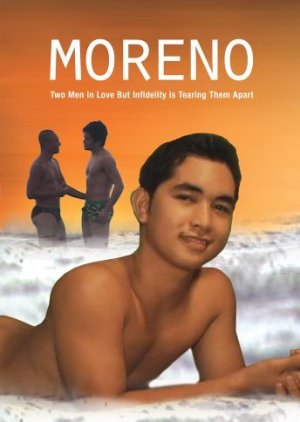









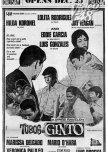
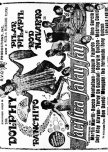
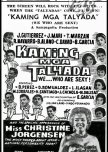

![[BL/gay/LGBTQ+] movies & short movies](https://i.mydramalist.com/kmL7O_4t.jpg)
![[BL/gay/LGBTQ+] movies & short movies](https://i.mydramalist.com/eVm48t.jpg)
![[BL/gay/LGBTQ+] movies & short movies](https://i.mydramalist.com/gZZ0Ot.jpg)
![[BL/gay/LGBTQ+] movies & short movies](https://i.mydramalist.com/7r3YBt.jpg)
![[BL/gay/LGBTQ+] movies & short movies](https://i.mydramalist.com/kDBwv_4t.jpg)
